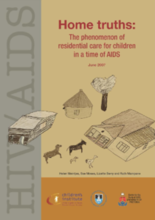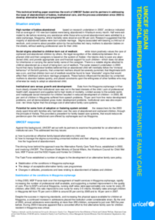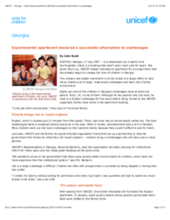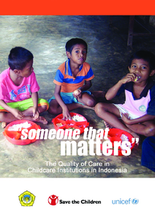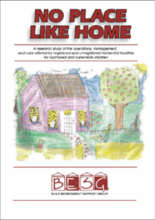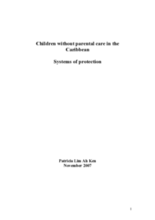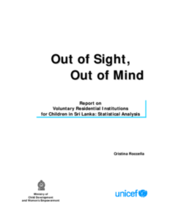Displaying 1361 - 1370 of 1482
A report on residential care in South Africa in the context of AIDS and an under-resourced social welfare sector.
Examines the work of UNICEF Sudan and its partners in addressing the issue of abandonment of babies, institutional care, and the process undertaken since 2003 to develop alternative family care programmes.
In Georgia, UNICEF and EveryChild have teamed up to place children in need of alternative care in small, supervised apartments as an alternative to orphanages.
The aim of this report is to review international human rights norms as well as Liberian legislation, and to assess the compliance of orphanages with those standards.
Comprehensive evaluation of national responses and level of care standards for children without parental care in Indonesia.
A study of the management, operations, and care offered by institutions for AIDS orphans in South Africa. It compares the findings of registered and unregistered institutions.
Qualitatively assesses the vulnerability of children living in institutional care in Vietnam. Includes specific recommendations for systems strengthening to reduce vulnerability in various institutional contexts.
This video by Save the Children highlights key research findings from an assessment on the quality of care in children's homes in Indonesia (2007), jointly published with the Indonesian Ministry of Social Affairs and UNICEF.
A regional assessment of responses to children outside parental care in the Caribbean. Extensive research on successful examples of alternative care. Includes recommendations and lessons learned.
This report provides a general overview of the situation of voluntary residential care institutions in Sri Lanka through the results of a national assessment campaign conducted in all districts by Probation Officers and Child Rights Promotion Officers.

